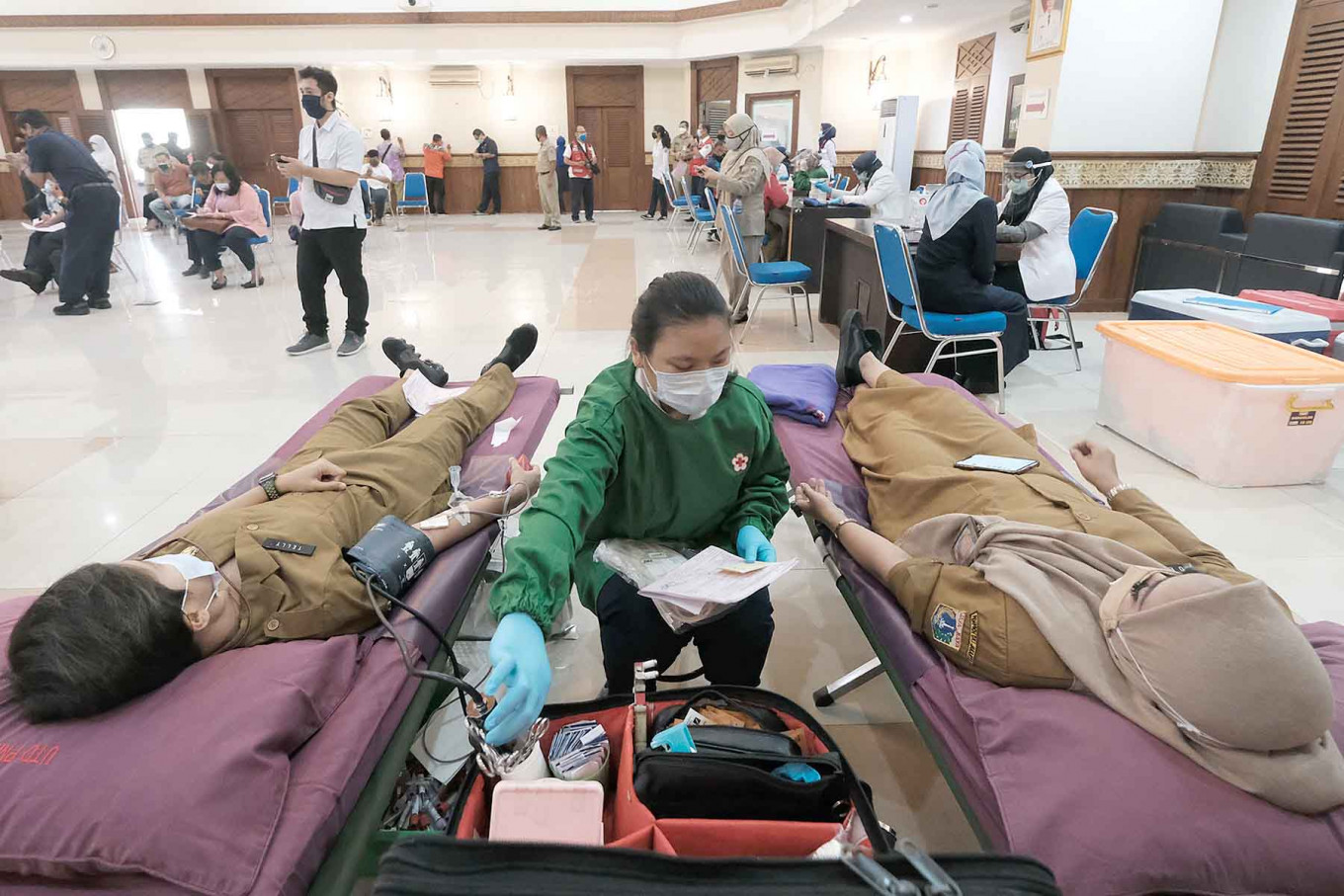Popular Reads
Top Results
Can't find what you're looking for?
View all search resultsPopular Reads
Top Results
Can't find what you're looking for?
View all search results[INSIGHT] Respond, recover, reimagine: How government agencies can emerge stronger
Change text size
Gift Premium Articles
to Anyone
T
he pandemic has brought about changes in the way we live, work and play – from healthcare workers taking on additional roles to the new normal of office staff working from home.
It is a time when every step or misstep of civil servants is magnified, when they adapt and pivot to serve citizens or lapse to reveal a lack of resources or planning. Through analytical insights, government agencies can go beyond responding to emergencies and can ensure that policy planning and the execution of policies result in positive outcomes for citizens.
As we emerge from the ruins of the pandemic and assess its unfolding impact, analytics can help in the recovery. Analytics can inform strategy and policies through providing a holistic understanding of our environment and circumstances through situational awareness. Governments will need a strategic framework to navigate the country out of this crisis. A three-phased framework, when applied to government agency decisions, can guide leaders in making critical decisions.
In the initial stages of a crisis, when governments are responding to it, analytics can provide insights for situational awareness to understand the potential threats and trajectory of a given situation. Decisions have to be made quickly based on rapidly evolving data, and analytics can help in refining situational awareness through assessing the situation, visualizing it and charting trends to predict future possibilities.
Analytics in medical resource optimization can predict the need for limited resources such as medical equipment and infrastructure. Public health agencies can use specialized analytics and scenario analysis tools to plan for situations to help governments build capacity before it is needed.
Analytics can also be used in manual contact tracing efforts to better understand who should be tested, where the virus is spreading, which communities are at the greatest risk and to identify missing or unexpected linkages in the community.
In India, the Odisha state government developed analytic models predicting the pandemic’s peak periods for infections and deaths at district levels and forecasting COVID-19 hotspots and containment areas. It was used to estimate quarantine bed capacity and intensive care unit (ICU) infrastructure, considering the immigrant population. Insights from analytical modelling for best- and worst-case scenarios have been used to map regions to be reopened for movement to mitigate the spread of the virus.
With an average of 40,000 hits per day, the dashboard has played a large part in Odisha’s ranking of third among India’s states in COVID-19 data reporting.
As communities begin to recover, analytics can support public sector agency efforts. Countries, states and local government agencies are currently targeting their support, via direct stimulus payments, at individuals and businesses. These agencies can preserve their limited funding for those in need by using analytics to identify which entities need aid the most and to detect fraudulent activities.
One example is New Zealand’s Ministry of Social Development, which developed an analytics data model to estimate risks of welfare dependency among their most vulnerable groups, consisting of teen parents and young people unable to live with their families, predicting the probability of this population moving on to receive adult benefits.
With the insights, they were offered targeted services intended to reduce their long-term dependency, including mentoring, budgeting skills, education and training. The strategy worked, as findings revealed that those who received the extra investment moved on to adult benefits at the lowest level since 2008, with employment rising 9.3 percent in 2013.
In the recovery phase, public sector agencies must evaluate their agency situation. They must assess a likely drop in revenue and prioritize activities and projects within limited funding. The decision-making process can be improved by applying analytics to gain evidence-based insights on projects that will have the most impact over specified periods of time.
As we emerge from the pandemic, the use of analytics will help our government agencies reimagine approaches to a changing landscape. The pandemic has accelerated digital transformation, driving online purchases of food as well as services.
Government agencies are being forced to rethink the way they interact with and serve the public, as well as the long-term impact on citizen behavior. Transformation or reimagination is crucial.
Public sector leaders can use analytics to unlock the vast potential of the data within their agencies. A sound data governance framework along with the effective use of analytics can enable access to data within the organization as well as between agencies for interagency collaboration to guide decision-making. With this, leaders are empowered to make informed and innovative decisions that will improve outcomes, ensure access to services and programs and support good stewardship of money and the public trust.
Advanced analytics like artificial intelligence, machine learning and augmented analytics can improve the speed and volume of analytics performance to enhance productivity and efficiency, enabling greater predictive accuracy. As we emerge from the pandemic into a different world, government leaders need to rethink a new paradigm and approach.
We should leverage this pandemic to use analytics to transform the current approach of our government as well as to engage citizens in new ways, to equip ourselves for future crises.
--------
Vice president for ASEAN at SAS, an American multinational developer of analytics software










